
If you are looking for a college students drug rehab in Florida, Reign Residential Treatment Center can help.
Drug abuse is a growing problem among college students across the United States. While drug use can start at any age, it is particularly concerning when it affects young adults who are just beginning to build their futures.
Let’s discuss why college students abuse drugs, trends in college student drug rehab in South Florida, and how the Reign Recovery Center in South Florida can help.
Statistics from the 2019 National Survey on Drug Use and Health, show an estimated 5.9 million people aged 12-25 reported misusing illicit drugs. That’s 24 percent of young adults and teens misusing alcohol and drugs. Of these:
The survey also revealed that more than 16 million Americans aged 12 and older had a Substance Use Disorder (SUD) in 2019.This figure includes 7.6 percent of individuals aged 12-20 and 6.6 percent aged 21-25.
Additionally, the survey found that more than 4 million young adults and teens experienced a major depressive episode in 2019. This number breaks down to nearly 14 percent of individuals aged 12-17 and 11.3 percent aged 18-25. This indicates that mental health issues are often at the root of substance use disorders and highlights the need for comprehensive treatment that addresses both problems.
Substance abuse is an unfortunate reality for many college students, with the most commonly abused substances being:
When it comes to young adults, there are a few key signs that you or someone you love may have an issue with substance abuse:


There are many reasons why college students turn to drugs. Some of the most common causes include:
College students may feel pressured to conform to their peers by experimenting with drugs.
College life’s academic and social pressures can be overwhelming for some students, leading them to seek relief through drug use.
For some students, a desire to explore new experiences may motivate drug use.
Depression, anxiety, and other mental health conditions can lead some students to use drugs to cope.
Low self-esteem and feeling disconnected from others can drive some students to drug use.
The NIAA reports that one in four college students experience negative academic consequences from drinking, and about two out of five reports missing class because of alcohol.
Officials realize the drug and alcohol abuse problem among their college campuses, and many are taking steps to prevent collegiate substance abuse.
These campus prevention efforts include:
College student substance abuse treatment has come a long way in recent years. Today, many different types of collegiate recovery programs are available specifically designed for young adults. Some of the most effective approaches include:
Detox is the first step in treatment and involves a period of monitored withdrawal from drugs or alcohol.
Residential or inpatient treatment programs provide 24-hour care in a supportive environment and are often the most effective approach for college students.
Atlantic Recovery Center does not currently offer an outpatient treatment program. Outpatient programs would permit students to seek treatment without taking time off from school or work.
This therapy focuses on behavioral health by helping addicts acknowledge the negative thought patterns and behaviors contributing to drug use.
Dialectical Behavioral Therapy (DBT) is a hybrid of Cognitive Behavioral Therapy that synthesizes individual and group therapy to empower individuals to use healthier coping mechanisms.
Individual therapy is designed to help clients identify the underlying causes of their substance abuse and develop new coping strategies.
Group therapy provides a supportive environment where individuals can share their experiences with others who have struggled with similar issues.
Family counseling helps repair relationships that addiction has damaged and supports family members.
Aftercare planning helps individuals prepare for life after treatment with strategies to prevent relapse and build a supportive network.
12-step recovery programs are designed to provide individuals with a structured support and accountability system.
We must understand these issues to provide the best possible care for any man struggling with substance abuse. This includes providing resources such as gender-specific treatment programs and support groups that address the unique needs of men.




Yes! Support groups like Alcoholics Anonymous (AA) and Narcotics Anonymous (NA) offer supportive environments where young adults can connect with peers who are in recovery. In addition, there are groups like:
Ala-teen is an organization dedicated to providing support and information to teens affected by alcoholism in their families.
SMART (Self-Management And Recovery Training) provides evidence-based tools and strategies for young adults struggling with addiction.
LifeRing Secular Recovery is a support group for those seeking an alternative to 12-step recovery.
In addition, Young People in Recovery is a grassroots organization dedicated to helping young adults access treatment, find jobs, and create healthier lifestyles.
Additionally, many colleges have student-run support groups that provide a space for students to come together and share their struggles with substance abuse.
These programs also offer resources for getting help and provide a safe space to talk about addiction without judgment.
Your health insurance can help cover up to 100% of the costs associated with treatment at Reign Residential Treatment Center. Find out your personal options for treatment with a free insurance verification right now.










At the Reign Recovery Center, we have crafted detailed addiction treatment for college students in South Florida that provide top-notch care. At Reign Recovery Center, we believe that recovery is possible for everyone. We offer personalized treatment plans tailored to each individual’s unique needs and goals.
With our help, you or your loved one can overcome addiction and build a brighter future. If you are struggling with substance abuse issues, don’t wait.
Contact RRTC today to learn more about our programs and how we can help with your addiction recovery!
We aim to help everyone who contacts us. Whether our program makes sense for you or not, we will help you find the best treatment options that work best for your personal needs.